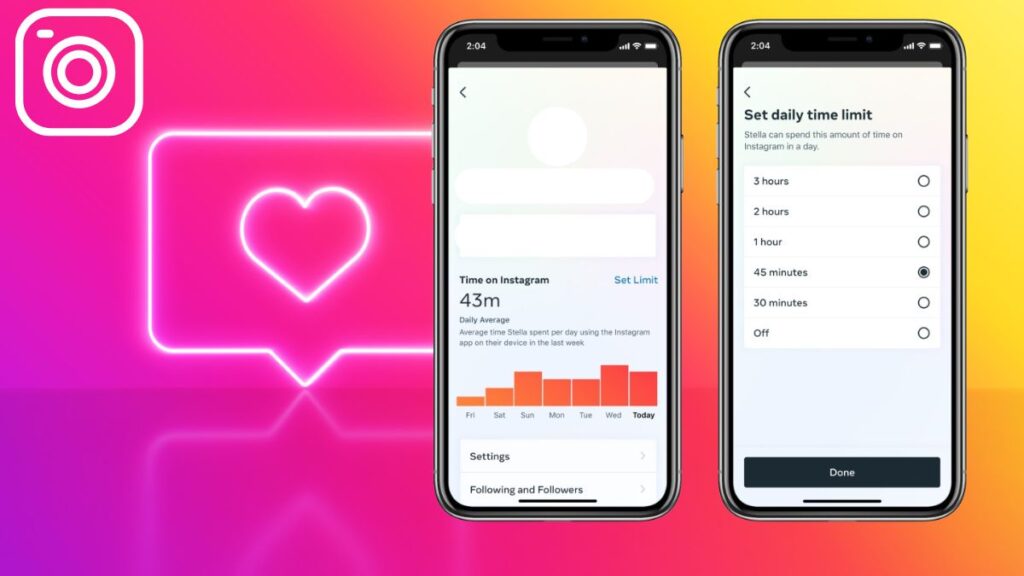Discover Instagram’s new mandatory parental controls for users under 16! Learn how Teen Accounts enhance safety while promoting responsible social media use.

In an age where social media is intertwined with daily life, the safety of younger users has become a paramount concern. Instagram, one of the world’s leading social media platforms, has recently announced significant changes aimed at enhancing the safety and privacy of its younger audience. Starting September 2024, Instagram will implement mandatory parental controls for all users under the age of 16. This article delves into the details of this update, its implications, and what parents and teens can expect from these new features.
The Importance of Parental Controls in Social Media
The digital landscape poses unique challenges for young users. Social media platforms can expose children to inappropriate content, cyberbullying, and predatory behavior. According to a report by the American Psychological Association, excessive social media use is linked to anxiety, depression, and lower life satisfaction among adolescents. As a result, there has been growing pressure on social media companies to implement robust safety measures that protect minors while allowing them to engage meaningfully with their peers.
Overview of Instagram’s New Teen Accounts
Instagram’s introduction of Teen Accounts is a direct response to these concerns. This new account type will automatically apply to all users under 18, with stricter settings for those under 16. Here are some key features:
- Automatic Privacy Settings: Teen Accounts will be set to private by default, meaning only approved followers can see posts and interact with the user.
- Messaging Restrictions: Teens will only be able to message people they follow or are already connected with. This change aims to limit unsolicited interactions from strangers.
- Sensitive Content Filters: The platform will enforce stringent filters on sensitive content, preventing exposure to material deemed inappropriate or harmful.
- Parental Supervision Tools: Parents will have access to tools that allow them to monitor their child’s interactions without seeing the content of messages. They can view who their teen has messaged in the past week and what topics they are interested in.
- Time Management Features: Instagram will notify teens after 60 minutes of use and enable “sleep mode” between 10 PM and 7 AM to encourage healthier usage habits.
How Will These Changes Be Implemented?
The rollout of Teen Accounts began on September 17, 2024, for new users under 18. Existing accounts for teens will transition to this new format within 60 days in regions like the U.S., Canada, UK, and Australia, with plans for a broader rollout in other countries starting in January 2025.
Addressing Concerns About Online Safety
The introduction of mandatory parental controls comes amid heightened scrutiny of social media platforms regarding their impact on youth mental health. Meta (Instagram’s parent company) has faced criticism for not doing enough to protect young users from harmful content. In response, these new features aim to provide parents with greater oversight and reassurance about their children’s online activities.
However, critics argue that placing the onus entirely on parents may not be sufficient. Advocacy groups emphasize that while parental controls can help manage risks, they should not replace comprehensive safety measures implemented by social media companies themselves. The NSPCC (National Society for the Prevention of Cruelty to Children) described Instagram’s initiative as a “step in the right direction,” but called for more proactive measures from Meta to prevent harmful content from spreading on its platform.
The Role of Parents in Digital Safety
With these new tools at their disposal, parents can take a more active role in managing their children’s online experiences. Research shows that many parents already utilize some form of monitoring or parental control software:
- Parental Monitoring: Over half of parents report checking their teen’s social media activity regularly.
- Use of Parental Controls: Approximately 39% of parents use parental controls on their children’s devices or accounts.
However, there remains a gap between parental awareness and action. A study by Ofcom indicated that many parents do not fully utilize available tools due to lack of knowledge or comfort with technology. Therefore, education on how to effectively use these new features is crucial for maximizing their benefits.
Potential Challenges and Criticisms
While Instagram’s new policies aim to enhance safety, some experts warn about potential drawbacks:
- Privacy Concerns: Critics argue that increased monitoring could erode trust between parents and teens. Young users may feel that their privacy is compromised if they know their activities are being closely monitored.
- Risk of Circumvention: Tech-savvy teens may find ways around restrictions, undermining the effectiveness of parental controls. Experts suggest that education about responsible online behavior should accompany any monitoring efforts.
- Impact on Vulnerable Groups: For some adolescents—particularly those from marginalized communities—social media can serve as a vital support network. Increased oversight may inadvertently push these users away from platforms where they find community and belonging.
Conclusion
Instagram’s mandatory parental controls for users under 16 represent a significant step towards enhancing online safety for young users. By implementing stricter privacy settings and providing parents with monitoring tools, Instagram aims to create a safer environment for its adolescent audience.
However, it is essential for both parents and Meta to remain vigilant about the effectiveness of these measures. Continuous dialogue between parents, teens, and social media companies will be crucial in navigating the complexities of digital safety.
As we move forward into an increasingly digital future, fostering open communication about online experiences will empower both parents and teens to navigate social media responsibly while enjoying its benefits.



